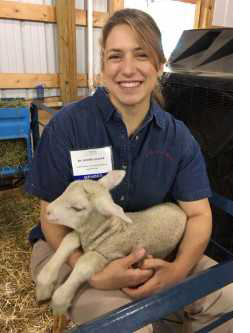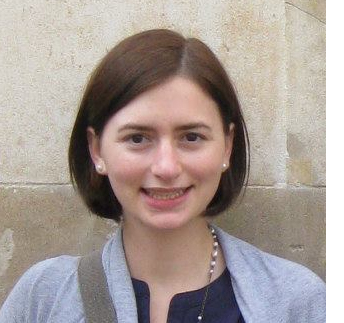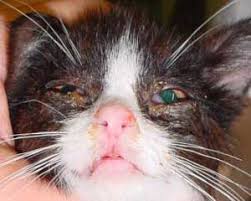- Membership
- Vet Techs
- Classifieds
- Education
- Get Involved
- Resources
- Annual Meeting
2018 MVMA Spring SeminarFeline Forum
Drs. Jody Lulich, Jennifer Granick, Margaret Duxbury and Eva Furrow
hhhh
Thursday, April 5, 2018
9:00 am - 4:30 pm
bbbbb
7.2 CE Credits
Presenters: Dr. Jody Lulich, DVM, PhD, DACVIM Professor, Department of Veterinary Clinical Sciences, University of Minnesota 
Dr. Jody Lulich currently holds the academic rank of professor at the University of Minnesota. He is a diplomate in the American College of Veterinary Internal Medicine. He is the director of the Minnesota Urolith Center. He specializes in nephrology and urology, and has earned an international reputation as a clinical investigator and educator in this field. Among his contributions to veterinary medicine is the technique of voiding urohydropropulsion, a nonsurgical method to remove uroliths from the urinary bladder. In 2007, he was voted as Speaker of The Year at the North American Veterinary Conference held in Orlando, Florida. He was awarded the Norden-Pfizer-Zoetis Distinguished Teacher Award in 2001 & 2013. Dr. Lulich currently holds the endowed Hills/Osborne Chair in Nephrology and Urology at the University of Minnesota. Dr. Jennifer Granick, DVM, MS, PhD, DACVIM (SAIM) Assistant Professor, Department of Veterinary Clinical Sciences, University of Minnesota 
Dr. Granick is an assistant professor of small animal internal medicine at the University of Minnesota College of Veterinary Medicine. She received her D.V.M. from the University of Wisconsin and completed a one-year rotating small animal internship and a small animal internal medicine residency at the University of Minnesota. She received a Ph.D. in Comparative Pathology from the University of California, Davis, where her dissertation was elucidated a novel innate immune response of hematopoietic stem and progenitor cells at the site of a cutaneous Staphylococcus aureus infection. Her basic research focuses the use of a novel non-antibiotic therapy to treat methicillin-resistant S. aureus-infected skin wounds, and clinical research on clinical antibiotic use and antimicrobial stewardship. Her clinical interests include infectious diseases, especially zoonotic diseases, and antimicrobial stewardship. She is a member of the Minnesota One Health Antimicrobial Stewardship Collaborative as well the University of Minnesota Veterinary Medical Center Antimicrobial Stewardship and Infection Control Committees. Dr. Margaret Duxbury, DVM, DACVB Co-owner, Veterinary Behavior Specialties of Minnesota 
Dr. Margaret Duxbury earned her DVM from the UMN in 1981. After 15 years in private small animal practice she completed a residency in behavior medicine and became a Diplomate of the American College of Veterinary Behaviorists. Dr. Duxbury served on the clinical and teaching faculty at the UMN CVM as an Associate Professor. She is currently co-owner of Veterinary Behavior Specialties of MN, a private, behavior-only specialty practice serving the twin cities and surrounding regions.
Eva Furrow, VMD, PhD, DACVIM Small Animal Internal Medicine & Canine Genetics, University of Minnesota 
Dr. Eva Furrow obtained her undergraduate degree in biology from Harvard University (BA, 2003), and then attended the University of Pennsylvania for her veterinary doctorate (VMD, 2007). After completion of a small animal internship at the University of Pennsylvania, she moved out to the Midwest for a residency in small animal internal medicine at the University of Minnesota (UMN), College of Veterinary Medicine (DACVIM, 2011). She then completed a PhD (2014) in the Canine Genetics Laboratory at the UMN on metabolic and genetic risk factors for urinary stones in dogs. She is currently an assistant professor of internal medicine and genetics at the UMN. Her primary interest areas include genetic, urinary, endocrine, and metabolic disorders.
SEMINAR DAY-THURSDAY, APRIL 5 8:00 am – 9:00 am: Registration & Continental Breakfast 9:00 am – 10:30 am: Updates in the Diagnosis and Treatment of FLUTD Dr. Jody Lulich, DVM, PhD, DACVIM, Professor, Department of Veterinary Clinical Sciences, University of Minnesota At the end of this session participants will be able to:
10:30 am – 10:45 am: Break Dr. Jennifer Granick, DVM, MS, PhD, DACVIM (SAIM), Assistant Professor, Department of Veterinary Clinical Sciences, University of Minnesota At the end of this session participants will be able to:
12:15 pm – 1:15 pm: Lunch 1:15 pm – 2:45 pm: Cats Don’t Want Pajamas! What Cats Need to be Peaceful Companions Dr. Margaret Duxbury, DVM, DACVB, Co-owner, Veterinary Behavior Specialties of Minnesota Cats’ behaviors make much more sense when you understand how they tick! At the end of this session participants will be able to:
2:415 pm – 3:00 pm: Break Dr. Eva Furrow, VMD, PhD, DACVIM, Assistant Professor, Small Animal Internal Medicine & Canine Genetics, University of Minnesota At the end of this session participants will be able to:
ADDITIONAL SEMINAR INFORMATION
For questions regarding the Cat Friendly Practice® CE requirements, please refer to the AAFP’s Member Center or contact the American Association of Feline Practitioners at [email protected] or 800-874-0498. For more information on the Cat Friendly Practice® program please click here. The MVMA Spring Seminar is generously sponsored by: 
SEMINAR LOCATION Continuing Education & Conference Center SEMINAR COSTS
If space is still available after March 22, 2018, prices will increase by $50 Webinar registration option:You have the option to attend the MVMA Spring Seminar on April 5th, beginning at 9:00 am CDT, from anywhere you have an internet connection! Choose the “webinar” option when you register. The morning of the seminar you will be emailed the secure link to attend the live session. Only the purchaser has access with this link, as the attendee must sign-in with his/her name and is monitored. The registered webinar attendee is also the only one eligible for the CE credits associated with the MVMA Spring Seminar. The webinar is only available during the live presentation; it will not be offered later. What will you experience: Once you have accessed the webinar your computer screen will be dominated with a direct-feed PowerPoint for clarity of viewing, plus the audio of the presenters as the slides automatically advance on your screen. A small video window on the side of your screen will show the presenting. The live Q&A session will be simulcast also and you will be able to send questions from your screen options if you wish.
The MVMA Spring Seminar are generously sponsored by:

|


 10:45 am – 12:15 am: Update on Common and Emergent Feline Infectious Diseases
10:45 am – 12:15 am: Update on Common and Emergent Feline Infectious Diseases